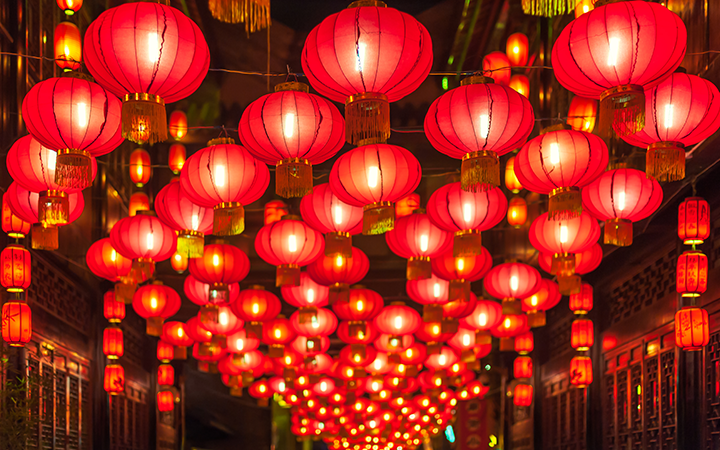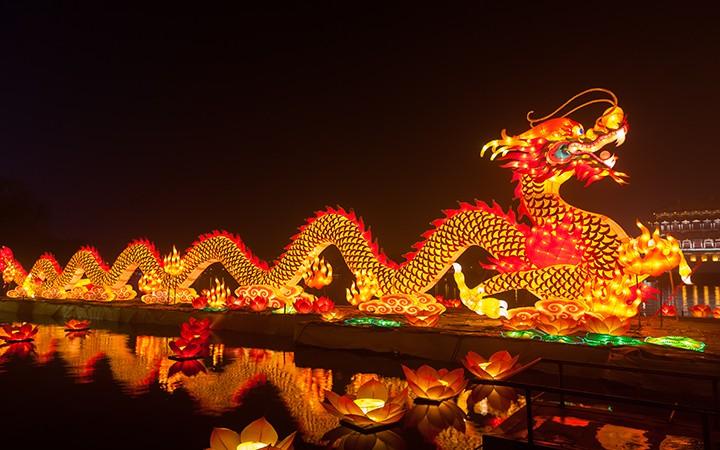A business traveller’s guide to Lunar New Year

Beyond the lanterns, red packets and lion dances, Lunar New Year has major impacts on many businesses and their operations. As a business traveller, understanding the cultural nuances and intricacies behind this celebration can help you foster more meaningful connections with your colleagues and business partners. Join us as we unpack the cultural and business impacts of this festival celebrated by millions across the world.
What is Lunar New Year
Lunar New Year, also known as the Spring Festival or Chinese New Year, marks the beginning of the lunar calendar, usually falling between late January and mid-February. It is predominantly celebrated by East Asian communities, including the Chinese, Vietnamese, Korean, Malaysian, Singaporean, Indonesian, Tibetan and Mongolian communities.
For those who celebrate, Lunar New Year is more than just a date on the calendar; it is a festive period steeped in traditions and deep-rooted customs to symbolise a time of renewal, family reunions, and the ushering in of good fortune and prosperity. Families gather for sumptuous feasts, ancestral worship, and vibrant dragon and lion dances. It marks a fresh beginning, where wishes for prosperity, health, and good fortune take flight. The significance lies in the belief that these traditions bring blessings and luck for the coming year.

2025: The Year of the Wood Snake
This year’s Lunar New Year celebrations begin on Wednesday, 29 January. According to the Chinese Zodiac, 2025 marks the Year of the Snake. More specifically, the Wood Snake.
In Chinese culture, the Snake symbolises wisdom, intuition, and transformation. Paired with the Wood element, this year is associated with growth, adaptability, and strategic thinking. The Wood Snake’s energy fosters intelligence, creativity, and a knack for solving complex problems with precision and care.
As we step into 2025, the influence of the Wood Snake suggests a year of calculated growth and thoughtful progress. It’s an ideal time for businesses and individuals to focus on strategic planning, build meaningful connections, and embrace innovation. Whether it’s launching new ventures or refining existing processes, this year’s energy encourages careful yet ambitious actions, paving the way for sustainable success.

A significant occasion for business
In many Asian countries, Lunar New Year is a time of extensive celebration, with many people from urban areas often returning to their hometowns to be with family. As a business traveller, it's crucial to be aware of this mass migration and plan accordingly. Many businesses may close during this period, impacting regular operations and services. Understanding and respecting these cultural nuances is essential for maintaining smooth business interactions.
On the flip side, businesses that recognise and celebrate Lunar New Year with their employees often foster a sense of loyalty and commitment. Acknowledging the cultural significance of the festival through corporate events or time-off policies can improve employee morale and contribute to a positive work environment.
Business best practices
With the growing multiculturalism in our society, it’s important to be aware of certain nuances and practices tied to Lunar New Year to build a more inclusive and respectful environment for our peers, colleagues and business partners.
-
Know your numbers
Numbers hold a lot of significance, particularly during this time of the year. Avoid using the unlucky number 4 (four) as its phonetic resemblance in Chinese culture associates it with ‘death’. Instead, embrace lucky number 8 (eight) which is tied to ‘wealth’ and ‘prosperity’. Think of the dates and times of your business dealings too. Incorporating this understanding into your dealings can show a keen awareness and respect for cultural nuances.
-
Colours convey meaning
Bright, vibrant colours hold significance during this festive season, with red being the most auspicious. Consider incorporating red into your attire or corporate gifts as a gesture of goodwill. Other vibrant colours like orange, yellow or purple are also acceptable.
-
Gifts of good fortune
Consider gifting items that symbolise prosperity and good fortune. Traditional choices include mandarin oranges, a symbol of wealth in business relationships. On top of that, elegant gift baskets featuring high-quality teas or treats can also be thoughtful gestures that convey appreciation and best wishes for a prosperous year ahead.
-
Timing is everything
Plan your business activities with the lunar calendar in mind. Avoid scheduling important meetings or negotiations during significant Lunar New Year celebrations to ensure a harmonious and prosperous outcome.
-
Respect employees taking time off
Given the significance of Lunar New Year, expect employees or stakeholders who celebrate the occasion to take time off. Avoiding work demands on Lunar New Year's Eve, understanding the importance of family reunions, and anticipating leave requests well in advance contribute to fostering a workplace that values diversity and the personal lives of its members.
-
Mix business with festive cheers
If your business trip coincides with Lunar New Year, take time to experience the celebrations. Attend a lion dance, explore bustling markets, or enjoy festive dishes like dumplings and rice cakes. Immersing yourself in the local culture not only adds value to your trip but also helps build meaningful connections with your business partners.
As a business traveller, understanding these cultural nuances of Lunar New Year is essential for successful outcomes. By incorporating these best practices, you can not only navigate this period with cultural finesse but also cultivate relationships enriched by respect, understanding, and a touch of auspicious fortune.
May your business ventures flourish this Lunar New Year 2025, and to our readers who celebrate, we wish you a harmonious and prosperous Happy Lunar New Year!


